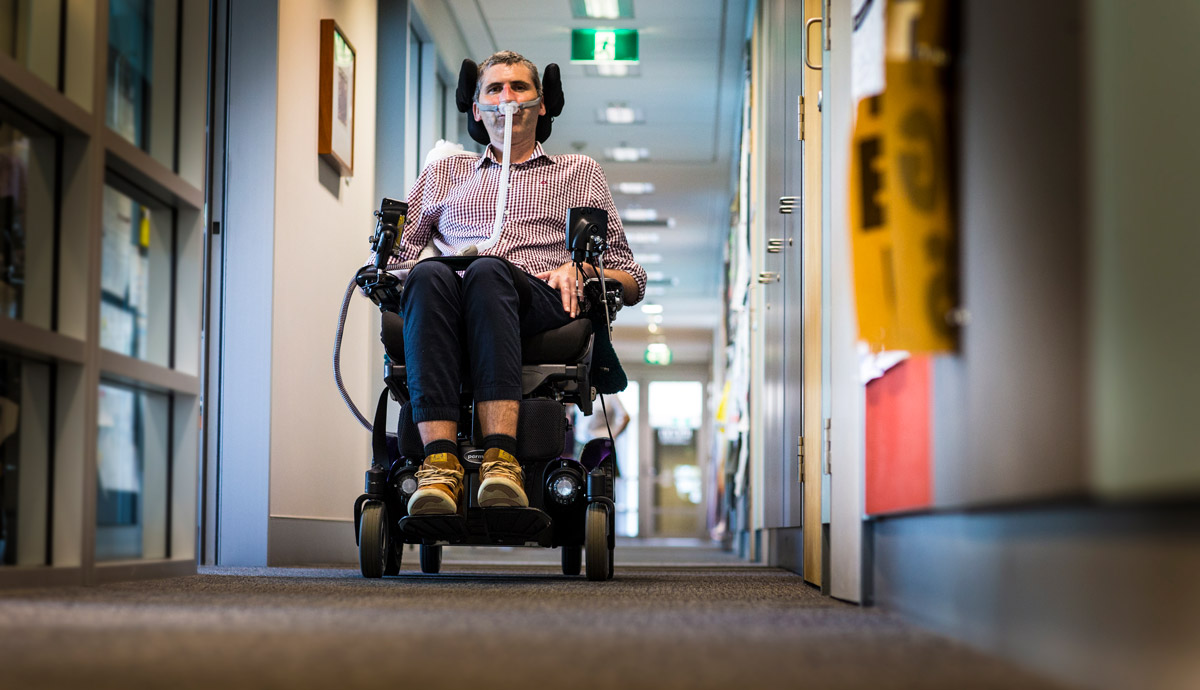December 13, 2018
UOW's Motor Neurone Disease appeal on track to meet its goal
Associate Professor Justin Yerbury continues to work to find a treatment for debilitating disease
The response to Associate Professor Justin Yerbury’s appeal to raise money to find a cure for Motor Neurone Disease (MND) has been incredible.
Within weeks of the appeal launching in November, the University of Wollongong has received more than $24,000 towards the $30,000 goal to support Professor Yerbury’s vital research.
Despite the challenges of his own battle with the disease, Professor Yerbury is committed to continuing the fight against the debilitating disease in the laboratory.
The molecular biologist at the Illawarra Health and Medical Research Institute (IHMRI) is now confined to a wheelchair but continues to press ahead with work to find a treatment, and one day a cure, for MND.
He featured on ABC’s Australian Story twice in 2018, highlighting his career and his family history with MND, which sparked his interest in research.
It began when several members of his family were diagnosed with MND.
In one six-week period his mother, grandmother and aunt all died from the disease. He has also lost a sister, an uncle, and a cousin to the disease.
To better understand MND, Professor Yerbury undertook a Bachelor of Science degree at the University of Wollongong (UOW), graduating with first-class honours in 2004, and going on to receive a PhD from UOW in 2008.
He now leads a team of scientists at IHMRI that is researching neuro-degeneration and MND.
In May 2016, Professor Yerbury was diagnosed with MND.
“What drives me is not the fact that I’ve been diagnosed with this disease – it's trying to wipe this thing off the planet,” he said.
“MND has taken away my ability to walk, talk, move and breathe on my own – but it has not taken away my mind, my passion for research, or my determination to see MND as a treatable condition rather than a death sentence.”
The work of Professor Yerbury and his team focuses on understanding the molecular events that trigger MND. They have found that the way motor neurons handle their protein balance is a key factor in MND.
MND causes progressive degeneration of motor neurones in the brain and spinal cord. People with the disease progressively lose the use of their arms and legs, their ability to speak, swallow and breathe.
Approximately 2,000 Australians are living with MND. From diagnosis, their life expectancy can be counted in years or even months with the fingers on one hand.
In a minority of cases, around 10 per cent, there is a genetic link to the disease with members of the same family contracting it. For most people diagnosed with MND, however, the disease takes hold without warning.
